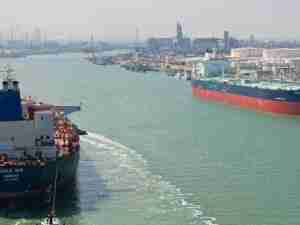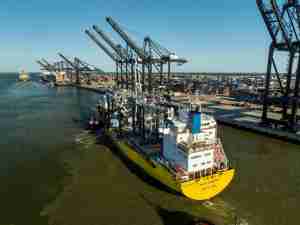Where many investors see hurdles, however, at least one investor sees opportunity.
Fertilizer startup Verde Fertilizantes is betting it can build a potash factory in Brazil that can beat rival imports on price even though it will cost more far more to make the fertilizer in the country than it would at more cost-efficient mine sites abroad.
That's because cheaper imports that account for 90 percent of Brazil's potash supply will still endure the notorious delays and costs associated with the country's chronically clogged ports and highways.
"We see a sustainable advantage over less expensive potash from abroad," said Milson Mundim, the chief financial officer of the company, listed in Toronto as Verde Potash. "It's unfortunate for Brazil, but fortunate for our project."
The project consists of a plant and mine in the heart of the Brazilian farm belt, one of the biggest and fastest-growing breadbaskets in the world. Located in southeastern state of Minas Gerais, the site is just three hours by truck from Uberaba, a hub for fertilizer distribution for Brazil's soy, corn, coffee, orange and sugarcane producers.
For the most part, its potash will be competing with low cost rivals imported from distant origins such as Canada's Saskatchewan province, 10,000 kilometers away.
President Dilma Rousseff earlier this year announced an $88 billion real ($40 billion) plan to lure investments to improve Brazil's old and overburdened infrastructure. Mundim, though, doesn't believe it can be implemented fast enough to lower costs for imported potash anytime soon.
Major port, railway, and highway projects, he says, are at least 10 years away, even without factoring in the expected delays in securing investors, capital, permits, and environmental licenses.
Nothing is Easy
"Nothing is easy in Brazil," says Mundim, a Brazilian. "If a project doesn't start today, well, you do the math."
His math suggests the factory alongside a mine at the Minas Gerais site could be up and running by 2015. An environmental license, he predicted, should be awarded next year, followed by 22 months of construction.
At present, Mundim estimates that the top-tier mines in Saskatchewan require investments of $700 per tonne of capacity to produce potash, while an Argentine project by Vale SA , the Brazilian mining giant, will require about $1,300 a tonne in investment. Vale recently decided to slow down investments in the project, known as Rio Colorado.
Costs of building the Verde Fertilizantes project will fall somewhere in between the two, Mundim said, declining to make an exact prediction because the company is still studying various models.
But imported fertilizer will keep having to make its way through the congested ports in the south and then travel thousands of kilometers on highways to reach markets next door for Verde Fertilizantes.
Consider the recent lineup of more than 60 ships carrying fertilizer that waited to dock at the main grain port of Paranagua. Some waited 48 days to unload.
Verde Fertilizantes' savings on transport should allow the company to take over 8 percent of Brazil's potash market by 2015 and 30 percent by 2020, Mundim predicts.
PRODUCTION COSTS
The company, started in 2005, initially planned to invest $269 million to produce thermopotash, a higher-grade variant of the fertilizer. Since then, the company decided to invest nearly twice as much and produce a more conventional form of the fertilizer known as potassium chloride.
The fertilizer is made by cooking deposits of green limestone slate in a giant high temperature kiln - a process similar to making cement.
Because Verde Fertlizantes' mine is open pit, Mundim says mining costs will be lower than deeper potash mine projects operated by competitors, such as Vale's Carnalita potash mine in the northea










